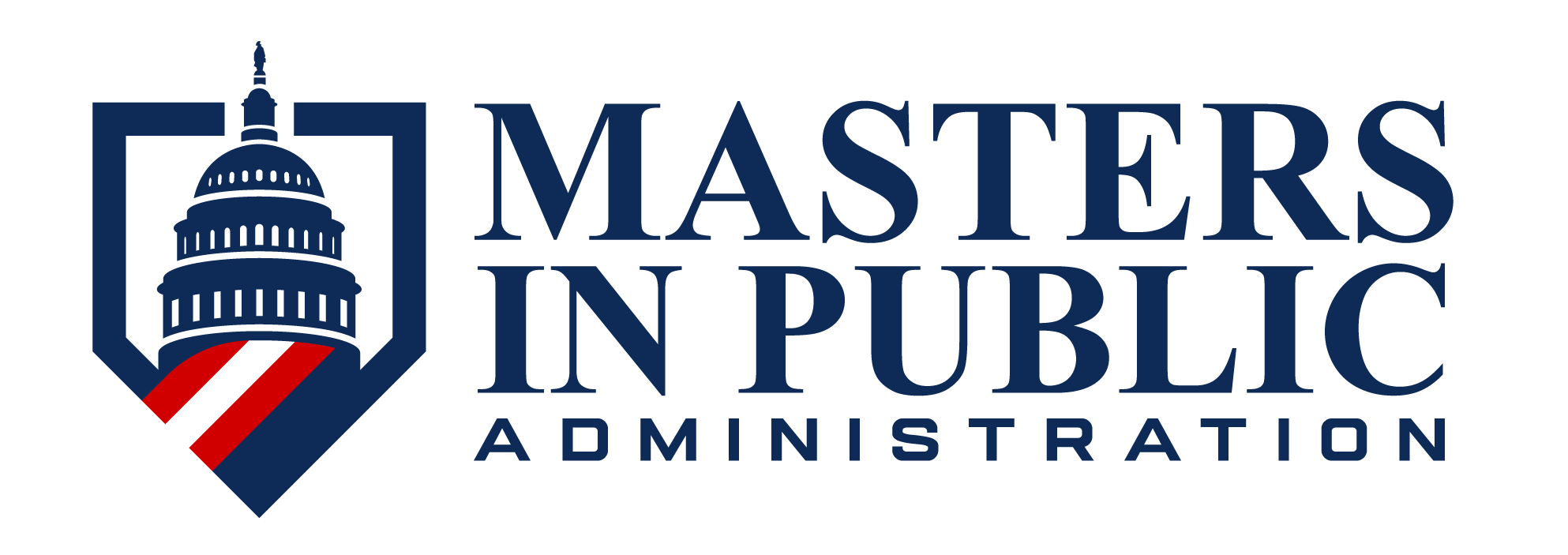Introduction
Systemic change that makes a difference in people’s lives often begins at the policy level. Policies dictate all manner of public life, from the healthcare we receive to environmental protection regulations. If you have strong convictions to assess social issues and implement effective policies, you might find yourself choosing between a Master of Public Administration (MPA) and a Master of Public Policy (MPP).
But what is public administration, and how does it differ from public policy? The latter creates solutions to social problems, and the former brings those solutions to fruition. Both MPA and MPP degrees offer valuable skills and knowledge for careers in public service. The choice between the two depends on your career goals and interests. If you are interested in leadership and management roles in the public sector, an MPA may be the right choice for you. If you are more interested in research and analysis of public policies, an MPP may be a better fit. Regardless of your choice, both degrees can lead to fulfilling careers in public administration and policy.
MPA vs. MPP: Degree Comparison
The Master of Public Administration (MPA) and the Master of Public Policy (MPP) are both graduate-level degrees that prepare students for careers in public service, but they have distinct focuses and unique aspects. When considering a graduate degree in public administration or public policy, it’s essential to understand the nuances between the two fields.
While both degrees focus on improving society, they do so in distinct ways. Public policy professionals design and analyze policies, focusing on the impact and effectiveness of various solutions. In contrast, public administration professionals implement policies, managing resources and operations to ensure successful outcomes.
Degree Requirements
One of the key differences between the two degrees lies in their core curriculum. MPA programs typically include a mix of quantitative, analytical, and organizational courses. In contrast, MPP programs focus more on specific policy areas like education, health, and social policy.
Both MPA and MPP programs usually take about two years to complete as a full-time student, although accelerated programs that can be completed in a year are also available. Additionally, many programs offer internship or practicum opportunities to provide students with hands-on experience in their field.
Both programs may also include an internship or practicum component to provide students with practical experience in their field. Overall, the choice between an MPA and an MPP depends on individual career goals and interests, with the MPA emphasizing management and administration skills and the MPP focusing on policy analysis and design.
Topics Covered
Public Administration (MPA) Degree:
Emphasizes practical skills needed for public sector leadership and management. MPA programs focus heavily on developing management and leadership skills. Students learn how to effectively lead teams, manage budgets, and implement policies.
The skills learned in an MPA program are highly transferable, allowing graduates to pursue careers in a variety of fields, including government, nonprofit organizations, and the private sector. Coursework can include- but is not limited to– the following:
- Public budgeting
- Human resources
- Organizational behavior
- Public Ethics
- Policy Implementation
- Program evaluation
Public Policy (MPP) Degree:
Emphasizes analytical skills needed for policy analysis and research. MPP students learn how to design and evaluate policies to address complex social issues, such as healthcare, education, and the environment.
MPP programs often take an interdisciplinary approach, incorporating coursework from fields such as economics, sociology, and political science. Coursework can include- but is not limited to – the following:
- Statistical methods
- Policy implementation
- Research design
- Policy analysis
- Economics
- Quantitative methods
Learning Outcomes
The learning outcomes for Master of Public Administration (MPA) and Master of Public Policy (MPP) programs differ in their emphasis and focus, reflecting the distinct career paths each degree prepares students for.
Public Administration (MPA) Degree:
- Develop leadership skills for effective public sector management.
- Understand the ethical and legal framework of public administration.
- Analyze and evaluate public policies for their impact on communities.
- Manage public sector budgets and resources efficiently.
- Communicate effectively with diverse stakeholders.
- Conduct research to inform policy decisions.
- Analyze policy problems and evaluate potential solutions.
- Use quantitative and qualitative methods to analyze policy issues.
- Understand the political, economic, and social factors that influence policy.
- Communicate policy recommendations to policymakers and stakeholders effectively.
MPA / MPP Combined Degree Programs
American University
- Washington, DC
- Online
Program:
Public Administration and Policy (MPAP)
Modality: Online
Credits: 36
Program Overview:
This program provides flexible scheduling and grants immediate access to American University’s extensive network of policy experts, esteemed faculty, and well-connected alumni. With a Master in Public Administration and Policy from American University, you will gain essential knowledge in policy analysis and public administration, enhancing your career prospects in public service, regardless of your location.
Grand Canyon University
- Phoenix, AZ
- Online
Program:
Public Administration and Policy Emphasis
Modality: Online
Credits: 38
Program Overview:
The program explores modern issues related to policy and governance, leadership, and human capital development. Students develop their leadership style, ethical decision-making, and problem-solving skills while examining core issues in public sector organizations. The curriculum covers competencies essential for understanding the operations of local, state, and federal government agencies. Students learn how to drive reform and progress to better serve the diverse needs of society.
West Texas A&M University
- Canyon, TX
- Campus
Program:
Political Science, Public Administration, and Policy
Modality: On-Campus
Credits: 42
Program Overview:
The Political Science Public Administration and Policy specialization is designed for those interested in government work, public service, public policy, or academic study of policy, politics, and political institutions. It offers a broad skill set and exposure to social sciences, government, and domestic politics. Students can access local and national internships, assist with faculty research, and pursue other interests in political science, other fields, or study abroad.
University of Michigan – Dearborn
- Dearborn, MI
- Campus
Program:
Public Administration and Policy (MPAP)
Modality: On-Campus
Credits: 36
Program Overview:
The Master of Public Administration and Policy (MPAP) program caters to a diverse student body, mainly comprising mid-career professionals from government or nonprofit sectors. The program offers seminars that accommodate full-time jobs, focusing on practical skills integration with theoretical understanding for adaptable leadership. It emphasizes policy development, leadership, strategic management, fundraising, and program evaluation.
Colorado State University
- Fort Collins, CO
- Online + Campus
Program:
Public Policy and Administration (MPPA)
Modality: Online/On-Campus
Credits: 39
Program Overview:
The Master of Public Policy and Administration (MPPA) program prepares students for leadership roles in international organizations, government agencies, and nonprofits. The interdisciplinary curriculum integrates academic theory with real-world experience, offering classes on weekday evenings or online to accommodate working professionals. Faculty bring firsthand public service experience to each class, facilitating hands-on learning experiences and connecting students with the vibrant city of Fort Collins. Graduates are equipped for roles as executives, managers, analysts, and planners in various public sector and nonprofit organizations.
Carnegie Mellon University
- Pittsburgh, PA
- Campus
Program:
Public Policy and Management (MSPPM)
Modality: On-Campus
Credits: 42
Program Overview:
Heinz College’s Master of Science in Public Policy & Management (MSPPM) program offers a unique approach to tackling complex societal issues by combining policy, technology, and management skills. The program goes beyond traditional classroom learning, incorporating experiential components like team-based Capstone projects and opportunities such as the Policy Innovation Lab and Hacking for Homeland Security. With four pathways to choose from, including options in Pittsburgh and Washington D.C., students graduate with the ability to analyze data and create evidence-based solutions.
New York University – Wagner
- New York, NY
- Campus
Program:
Public Management and Policy
Modality: On-Campus
Credits: 45
Program Overview:
NYU Wagner’s interdisciplinary MPA-PNP program prepares students for impactful careers in public service by offering coursework in finance, policy, and management. The program leverages NYC as an urban laboratory, providing hands-on experience and exposure to diverse real-world contexts. Engaging faculty members encourage students to apply classroom concepts to professional experiences, fostering critical analytic skills.
Texas A&M University
- College Station, TX
- Campus
Program:
Department of Public Service and Administration
Modality: On-Campus
Credits: 42
Program Overview:
The Department of Public Service and Administration (PSAA) focuses on developing ethical and effective leaders for the public and nonprofit sectors. They offer the Master of Public Service and Administration (MPSA) and Executive Master of Public Service and Administration (EMPSA) degrees, as well as graduate certificates in Nonprofit Management, Public Management, and Homeland Security. They also offer combined degree programs.
Comparing Career Fields and Professional Opportunities
While MPA and MPP graduates have similar foundational knowledge in public administration and policy, their degree programs’ focus areas can lead them to pursue different career paths. MPA graduates often excel in leadership and management roles within government agencies, while MPP graduates typically focus on policy analysis, research, and advocacy.
MPP and MPA Salaries
The diversity of career paths available can lead to varying salary prospects. According to the University of New Hampshire, individuals with an MPA degree earn an average starting salary of $67,670, while those with an MPP degree typically earn slightly more at around $70,805.
Northeastern University provides similar career estimates for MPA and MPP programs. Individuals with an MPA degree start at a salary of roughly $75,000, while individuals with an MPP degree start at a salary of $78,000.
MPA Career Fields
Leadership in Public Sector: MPA graduates often pursue leadership roles in government agencies and nonprofit organizations. They are equipped with skills in management, budgeting, and public policy analysis, making them valuable assets in roles such as city manager, program director, or executive director of a nonprofit.
Policy Analysis and Development: While MPA programs may not delve as deeply into policy analysis as MPP programs, graduates are still capable of analyzing policies and their implications. They can work in roles that involve evaluating existing policies, developing new policies, and implementing changes to improve public services.
Case Study: A graduate with an MPA might work as a city manager in a medium-sized city. In this role, they would oversee various departments, such as public works, parks and recreation, and finance, to ensure efficient and effective delivery of services to residents. They would also work closely with elected officials to develop and implement policies that align with the city’s goals and priorities.
MPP Career Fields
Policy Analysis and Evaluation: MPP graduates are trained to analyze policies using quantitative and qualitative methods. They often work in research roles, evaluating the effectiveness of policies and recommending changes based on their findings. They may work for think tanks, research institutions, or government agencies.
Advocacy and Lobbying: MPP graduates may work for advocacy organizations or lobbying firms, where they use their understanding of policy to influence decision-makers and shape public policy. They may advocate for changes in areas such as healthcare, education, or environmental policy.
Case Study: An MPP graduate might work for a think tank focused on education policy. In this role, they would conduct research on education issues, such as school funding or curriculum development, and publish reports and policy briefs recommending changes to improve the education system.









